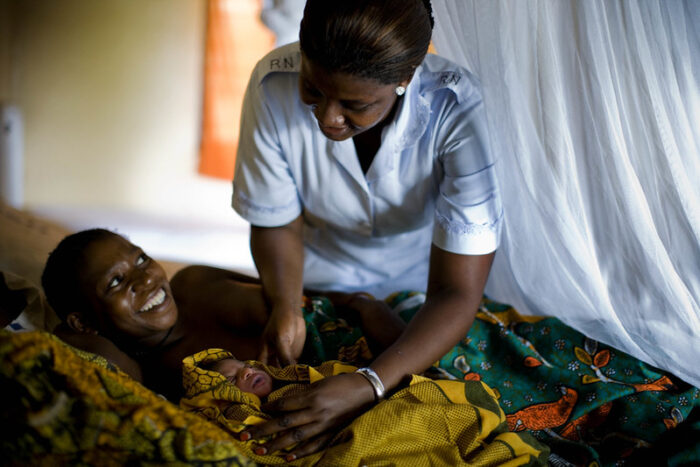Systems thinking: Transforming maternal and newborn healthcare in Tanzania

Tanzania has experienced an impressive 80% reduction in maternal mortality over the past five years, as cited in the recently published Tanzania Demographic and Health Survey and Malaria Indicator Survey (TDHS-MIS) 2022. This significant accomplishment propels the nation closer to fulfilling the sustainable development goal of diminishing maternal mortality to 70 deaths per 100,000 live births by 2030. Nevertheless, the report highlights a disquieting trend, a stagnant neonatal mortality rate persisting for nearly the last twenty years. From 2004 to 2022, neonatal mortality has merely decreased from 32 to 24 deaths per 1,000 live births, which is far from SDG target of below 12 deaths per 1,000 live births by 2030. Effectively addressing this complex issue necessitates the application of a systems thinking approach.
Systems thinking involves understanding the interconnected nature of various factors influencing maternal and newborn health and formulating comprehensive strategies to address them. A mere focus on statistics falls short; systems thinking encourages diving deeper into the societal, cultural, and infrastructural aspects impacting maternal health outcomes.
Progress and Challenges
While Tanzania celebrates the substantial reduction in maternal deaths, the persistent neonatal mortality rates demand a closer examination of underlying causes. A major reason for the slow progress in reducing neonatal mortality can likely be attributed to the lack of specialized care for small and sick newborns at lower level health care facilities. However, there is optimism that the situation will improve with the wider deployment of neonatal intensive care units (NICUs) even to lower healthcare facilities. Despite the ongoing Ministry of Health-led efforts to increase NICUs, the focus must extend beyond building infrastructures but also, training and motivating healthcare workers especially at lower level healthcare facilities.
A systems thinking approach also prioritizes interventions at the community level, acknowledging the complexity of maternal and newborn health as an overarching challenge, and the need to consider the entire system pregnant women and babies encounter. Pregnant women must be prioritized and assisted to receive quality prenatal care services and to understand how to make healthy choices. When babies are born, their communities need to be enabled with the knowledge and skills to understand how to best care for them.
An illustration of a systems thinking intervention in Tanzania is the M-mama program. The M-mama project tackles maternal and newborn deaths by addressing the “three delays” – seeking care, reaching a facility, and receiving proper treatment. It engages communities through education and “Community Care Groups,” providing emergency transport via ambulances and community taxis, and strengthening local healthcare with trained providers and essential supplies. In M-mama’s supported facilities, a 38% decrease was seen in maternal deaths and 40% decrease in newborn deaths between October 2017 and September 2021. M-mama plans to scale up its approach and reach in phase three to even more facilities.
This initiative has effectively tackled maternal health challenges by considering the unique context of different regions and effectively then incorporating localized solutions and technology. M-mama has been seen as a game changer in areas where it has been implemented, reshaping the narrative and offering a holistic approach to maternal health.
A Call to Action
Navigating the complex landscape of maternal and newborn healthcare necessitates a call to action. A systems thinking approach demands collaboration across sectors, the breakdown of silos, and the addressing of diverse challenges faced by expectant mothers and their newborns. Achieving sustained progress requires policymakers, healthcare professionals, and community leaders to collaborate and implement interventions considering the entirety of the maternal health ecosystem. It demands we shift from surface “one size fits all” solutions to tackling the core of maternal deaths, including quality of care and financing disparities.
Tanzania’s success in reducing maternal deaths is indicative of the nation’s commitment to improving healthcare outcomes. However, the persistent challenge of neonatal mortality calls for a shift in approach. By adopting a systems thinking mindset, focusing on community-level interventions, and drawing insights from successful programs like M-mama, Tanzania can pave the way towards achieving the SDG targets by 2030. It’s not just about reducing numbers; it’s about transforming the entire healthcare system for a healthier and more equitable future.